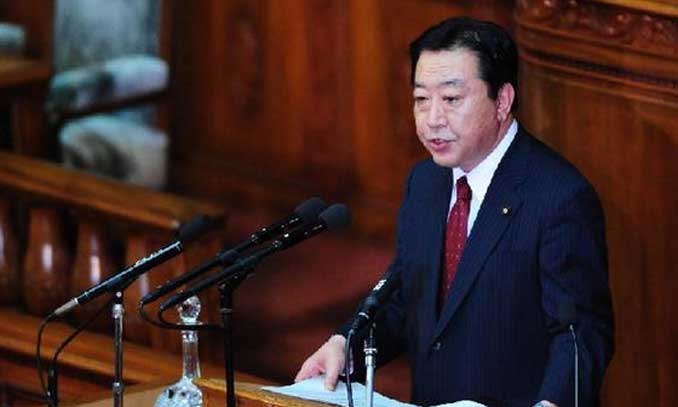Asia faces risky public opinion showdown

Japanese Prime Minister Yoshihiko Noda is planning to visit the Yasukuni Shrine on August 15, reported Japanese media citing lawmakers from the opposition party. This hasn't been confirmed. Noda indicated no such plan when he assumed office. But Japanese politics is difficult to predict. The report itself has reflected this possibility.
If Noda loses his mind and visits the controversial Yasukuni Shrine, it will deal a heavy blow to Sino-Japanese relations. As the analysis goes, Noda, when cornered into an impasse, may risk everything to save his position. The bilateral relationship with China will not be his top concern.
This hypothesis has worried many well-wishers. There have been precedents of Japanese politicians and parties swinging to extremes to woo supporters. It is clear that among several drawn-out issues between China and Japan, Tokyo has always been the side that escalates the conflict further into a dead end.
Democratic Japan obviously hasn't set a good example in solving historical and territorial disputes in Asia. Democracy, a double-edged sword, has released a range of animosities from Japanese society toward its neighbors, giving rise to extreme political views. This is alarming.
Democratization is unfolding in Asia. But countries in the region have little experience in solving diplomatic conflicts through democratic channels.
The Internet is fomenting diversified public opinions of China. A confrontation of opinion is being formed between China and Japan. Even without far-right politicians such as Shintaro Ishihara, Chinese society's anti-Japan mood can be felt clearly by Japan.
A confrontation of public opinion may be more disastrous than hostilities between the two governments. Is Asia heading toward a dangerous public opinion showdown? If the Japanese government encourages such a trend within Japan, it may start a chain reaction. Room for negotiation in Asia will gradually be squeezed out.
China's robust public opinion often imitates blundering words from Japan's extreme public figures on the issues of the Diaoyu Islands and Yasukuni Shrine visits.
Asia is no longer in an era when governments alone can resolve public issues. Public opinion will be a prime factor shaping public policy. But if governments let public opinion off the leash, Asia will be ushered into an uncertain future when the possibility of war cannot be ruled out.
Contentious public opinion has diverted the attention of countries to territorial disputes. Development, also a core issue, has lost its appeal in public opinion. For now, diplomatic toughness between Asian countries is more or less just public posturing. But once a hostile situation is formed, it is difficult to reverse.
Japan mustn't be shepherded by politicians such as Ishihara. Rationality must come back to Japanese politics, otherwise confrontation in Asia will spiral out of control.